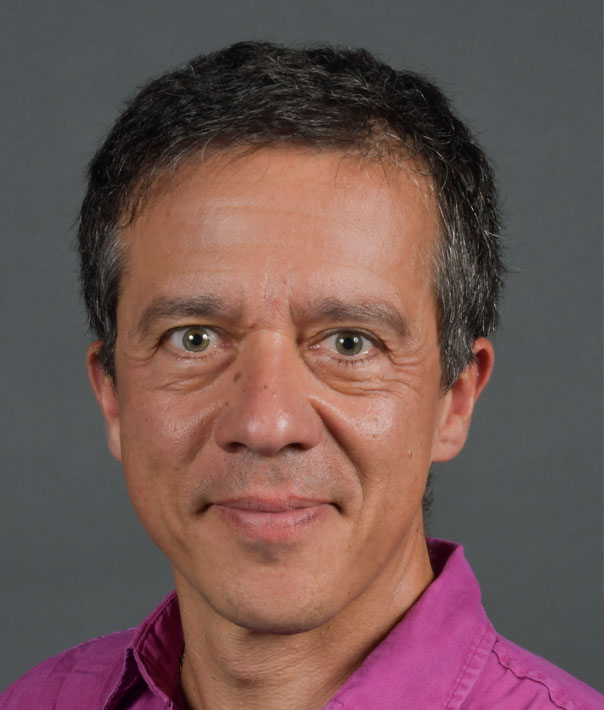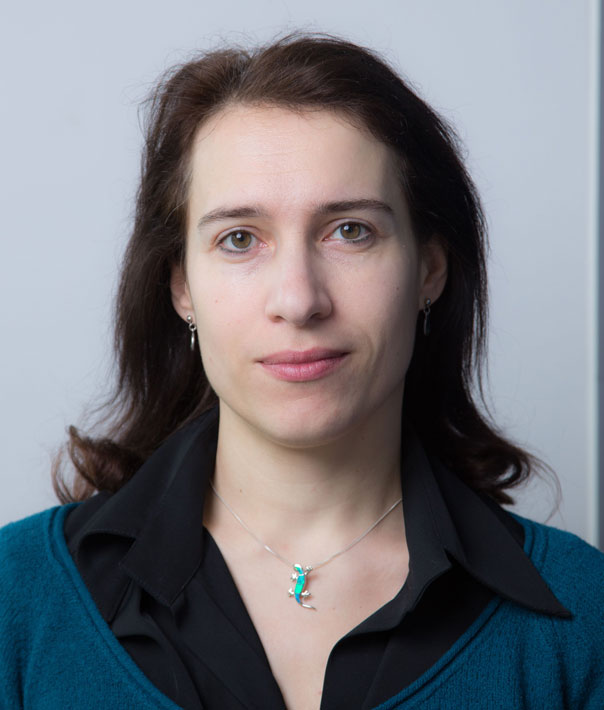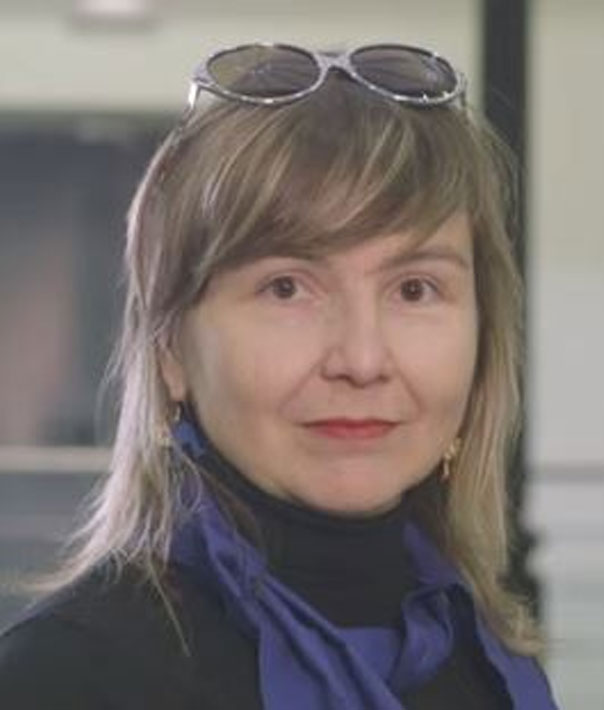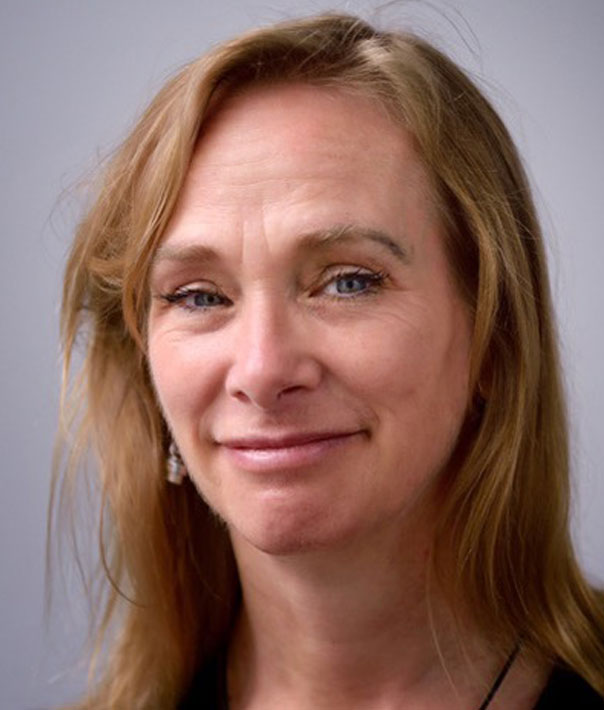![]() The High Level Advisory Committee (HLAC) is a group of international experts and acts as advisory body on how to increase the effectiveness and impact of FAIR-IMPACT. Key strategic choices are discussed with the HLAC, where their active participation and independent feedback ensure that FAIR-IMPACT strategy remains relevant in a fast-moving data landscape. Members of the HLAC cover a wide range of disciplines and stakeholders including research organizations, funders of research, open science ambassadors, publishers, amongst others.
The High Level Advisory Committee (HLAC) is a group of international experts and acts as advisory body on how to increase the effectiveness and impact of FAIR-IMPACT. Key strategic choices are discussed with the HLAC, where their active participation and independent feedback ensure that FAIR-IMPACT strategy remains relevant in a fast-moving data landscape. Members of the HLAC cover a wide range of disciplines and stakeholders including research organizations, funders of research, open science ambassadors, publishers, amongst others.
The HLAC was formally appointed in December 2022.
York Sure-Vetter
Affiliation: Nationale Forschungsdateninfrastruktur (NFDI)
Country: Germany
HLAC Chair
Prof. Dr York Sure-Vetter, professor at the Karlsruhe Institute of Technology (KIT), was appointed Director of NFDI (German National Research Data Infrastructure) on March 2020. He has established research experience in artificial intelligence and data science. His career has taken him to various stations in science system and also to the private sector.
Between 2009 and 2015, he was President of GESIS - Leibniz Institute for the Social Sciences, the largest German research infrastructure for social sciences. At the same time, he held a professorship first at the University of Koblens-Landau and then at the University of Mannheim. In 2015, he followed the call to the Institute for Applied Informatics and Formal Description Methods (AIFB) of KIT, where he taught and researched as professor. He was also director at the Karlsruhe Service Research Institute (KSRI) of the KIT and at the FZI Research Centre for Information Technology.
Michelle Barker
Affiliation: Research Software Alliance (ReSA)
Country: Australia
Vice-Chair
Michelle works as both the Director of the Research Software Alliance, and independently as an Open Science Consultant. Dr Michelle Barker has extensive expertise in FAIR and open science, research software, digital workforce skills and training, and digital research infrastructure. As a sociologist, Michelle is passionate about building collaborative partnerships to achieve system change.
She is an advisory board member of the RSE Asia Association and SBGrid member; chaired the OECD Expert Group on digital skills for the research sector; co-edited the European Open Science Cloud (EOSC) report on Digital Skills for FAIR and Open Science; served on the OECD Expert Group on Socioeconomic Impact of Research Infrastructures; and was an Advisory Committee Member of the US Software Sustainability Institute (URSSI). Michelle is a former Director of the Australian Research Data Commons, where she led the strategic planning for the Australian government’s $180 million, five-year investment in this national programme.
Nicolas Fressengeas
Affiliation: University of Lorraine & Ministry of Higher Education and Research
Country: France
Born in 1970 in France, Nicolas earned a PhD in physics in 1997, was granted the right to supervise PhDs in 2001 and became Full Professor in 2004 in the university of Metz, which merged in 2012 into the University of Lorraine. His research interests evolved from non-linear optics to optical materials, involving both experimental and theoretical work, with an emphasis on simulation and optimization in the last decade. He is teaching physics, digital physics, computer science, university pedagogy and Open Science.
Natalie Harrower
Affiliation: Canadian Research Data Centre Network
Country: Canada
Dr. Natalie Harrower is the Executive Director of the Canadian Research Data Centre Network (CRDCN) starting 1 April 2023. The CRDCN is a national research organisation and Major Science Initiative headquartered at McMaster University. CRDCN facilitates unique access to Statistics Canada microdata at 33 Research Data Centres (RDCs) for more than 2200 researchers across Canada in a wide array of disciplines.
Sabina Leonelli
Affiliation: University of Exeter
Country: United Kingdom
Sabina Leonelli is Professor of Philosophy and History of Science and Director of the Centre for the Study of the Life Sciences (Egenis) at the University of Exeter. She is also theme lead of the “data Governance, Ethics and Openness” strand of the Exeter Institute for Data Science and Artificial Intelligence; Fellow of the Alan Turing Institute, Academia Europaea and Académie Internationale de Philosophie de la Science; Editor-in-Chief of History and Philosophy of the Life Sciences and Associate Editor of the Harvard Data Science Review; Vice-President of the European Philosophy of Science Association; and recipient of the Lakatos Award 2018 and the Patrick Suppes Prize for the Philosophy of Science 2022.
Eva Méndez
Affiliation: Library and Information Science Department, Universidad Carlos III de Madrid
Country: Spain
Deputy Vice-President for Research Policy and Open Science, and Professor at the Library and Information Science at the Universidad Carlos III de Madrid (UC3M). Eva Méndez holds a PhD in Library and Information Sciences (LIS) and is an expert in metadata. She defines herself in her Twitter profile as an ‘open knowledge militant’. Eva has been a lecturer at Universidad Carlos III de Madrid (UC3M), LIS department since 1997.
Kathleen Shearer
Affiliation: Confederation of Open Access Repositories (COAR)
Country: Canada
Kathleen Shearer has been the Executive Director of COAR since 2013 and has been working in the area of open access, open science, scholarly communications, and research data management for over 20 years. COAR is an international association with over 150 members and partners from around the world representing libraries, universities, research institutions, government funders and others. COAR brings together individual repositories and repository networks in order to build capacity, align policies and practices, and act as a global voice for the repository community.





